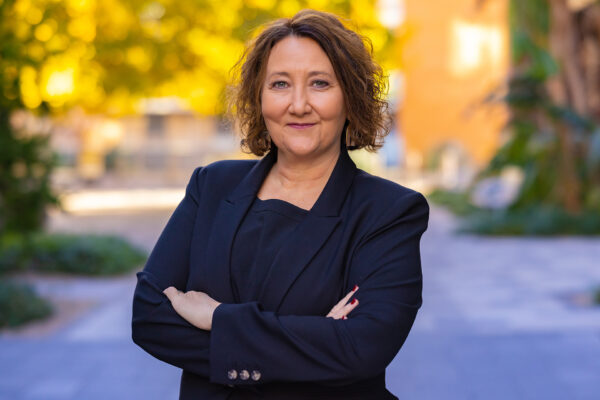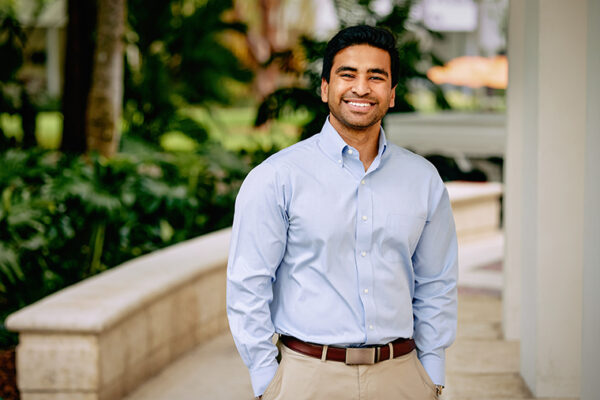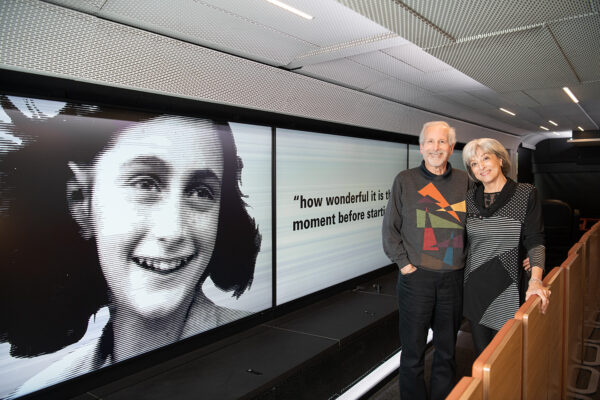While a graduate student at Washington University in St. Louis, Rachel Marsh, JD ’00, MSW ’00, first saw how social workers and lawyers together navigate some of the most tragic scenarios faced by children and families. For a Brown School practicum, Marsh worked at the Children’s Advocacy Center in St. Louis, serving children who had been victimized by sexual abuse.
“As therapists, we had to interact with attorneys because of the nature of the work we were doing. I still remember those children that we helped early on and our work with the courts,” Marsh says.
Two decades later, Marsh spends her days meeting with lawmakers, crafting and analyzing policy proposals, and researching best approaches for supporting youth with complex needs, among many other duties. She serves as chief executive officer of the Children’s Alliance of Kansas, an organization that advocates for family well-being and provides education and networking opportunities to its nearly 20 member organizations.
By design, Marsh’s path from St. Louis to the halls of the Kansas State Capitol in Topeka included several stops along the way.
“I always thought that it was important to work in the field before moving into the policy advocacy realm,” she says. “I wanted to deliberately work in different roles so that I could see the system from different perspectives over the years.”
“I always thought that it was important to work in the field before moving into the policy advocacy realm. I wanted to deliberately work in different roles so that I could see the system from different perspectives over the years.”
Rachel Marsh
Marsh started out serving children and families directly, first as an adoption case manager and later as a family law attorney. Her next position, as a lawyer for the child welfare provider Saint Francis Ministries, brought together the legal and social-services sides of her WashU training.
A few years into that role, Marsh paused to consider the sheer volume of court reports she had seen — around 10,000, she estimated. “I realized that I knew the issues case-by-case enough to talk about the trends and the policy implications,” she says. “And I began to gradually move toward that public policy lens.”
She became the vice president of advocacy at Saint Francis, accepted advisory roles on statewide panels and joined the board of the Children’s Alliance of Kansas. When the CEO position opened in 2020, she was ready.
In her current and previous roles, Marsh’s efforts have led to policy wins for kids. In 2019, Kansas became one of first states to adopt the Family First Prevention Services Act, a measure that has led to more than 1,000 fewer children entering foster care. Like many states, Kansas had previously experienced a rapid — and in Marsh’s view, avoidable — uptick in foster care cases.
“Many of the children who were entering foster care could have been safely maintained in their homes with the right services,” Marsh says. “We’ve learned over the years that there are some significant downsides to thinking that we can ‘save’ a child by placing them in a new family, potentially in a new community and school, and not able to contact relatives.
“If we can provide safety and well-being for a child in their home setting, then we want to prioritize that.”
“If we can provide safety and well-being for a child in their home setting, then we want to prioritize that.”
Rachel Marsh
In a separate effort, Marsh successfully garnered additional funding for the child welfare workforce of Kansas. Recruitment and retention of social workers — always a challenge, given the profession’s workload and emotional challenges — became even more difficult during the pandemic. The new funding allowed the continuation of quality care. Most recently, Marsh’s team focused on funding programs for older children with behavioral health problems, a group that makes up an increasing number of foster care placements.
Addressing these complex cases, like so much of Marsh’s advocacy, requires a wide range of expertise. The work is informed by the Children’s Alliance of Kansas’ wide network of dedicated professionals as well as Marsh’s own experience, starting at WashU.
“I can’t speak highly enough of the joint degree experience from Washington University, with the opportunities that it provided me to be creative in both fields and to meld them together,” Marsh says. “It’s a privilege to use my background in child welfare — informed by my law and social work degrees — to work in public policy for children and families.”


